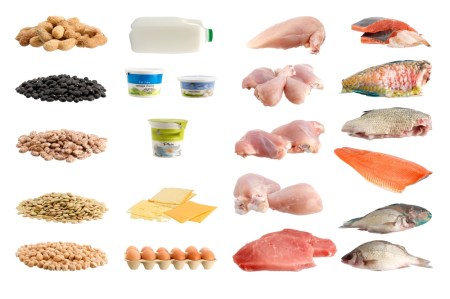Do you believe that you will benefit with bigger or leaner muscle if you eat extra protein-rich foods and then top up with protein supplements?
Protein is an essential nutrient: it is made up of amino acids, which your body uses to build and repair your muscles, red blood cells, enzymes, and other tissues.
But when you consume more protein than your body needs, the excess will be converted into fat.
“Too much of a good thing is not necessarily better,” says Rene Smalberger, registered dietician and President of the Association for Dietetics in South Africa (Adsa).
Essential amino acids
There are nine essential amino acids that must be obtained from dietary sources and 11 amino acids that can be manufactured in the body. The adequacy of your diet’s protein content is determined by the total amount of protein in the diet, and whether or not all the essential amino acids are included.
“People are often surprised how easy it is to eat the amount of protein needed. Population level studies in South Africa show that people do get enough protein to meet their needs,” says Smalberger.
“Foods like chicken, fish, milk, meat and eggs are well known for their protein content, but plant foods do also contribute to your intake of this important nutrient. Legumes namely dry beans, split peas, and lentils, and soya products are good sources of protein,” she says.
Grain products also contain protein, and because many of these are eaten in large amounts, the amount of protein in the overall intake is significant.
Metabolism of protein
“A dilemma that can arise when choosing protein-rich foods from animal sources is that many are high in fat, especially saturated fat. Eating too much saturated fat is not healthy but it is hard to limit its intake when these foods are included in a meal.
“Choose lean options of these foods, cook them without added fat, and use moderate portions. Most of the food in a meal should be from plant origin, with most only minimally processed,” she advises.
Smalberger said the metabolism of protein in the body was misunderstood by many people.
“If you eat more protein than your body needs the excess will be converted to energy and if your total energy intake is higher than your needs, it will be stored in the body as fat.
“Muscle will be built when a balanced diet is eaten, and appropriate exercise is undertaken. Excess dietary protein does not magically transport itself to muscles to build six packs overnight,” added Smalberger.
For more information on nutrition and protein intake, contact a registered dietician on www.adsa.org.za or ask Health24's DietDoc.
- (Adsa press release, Health24, June 2011)
Read more:
Protein facts for vegetarians
Protein and sports performance
Protein facts




 Publications
Publications
 Partners
Partners










